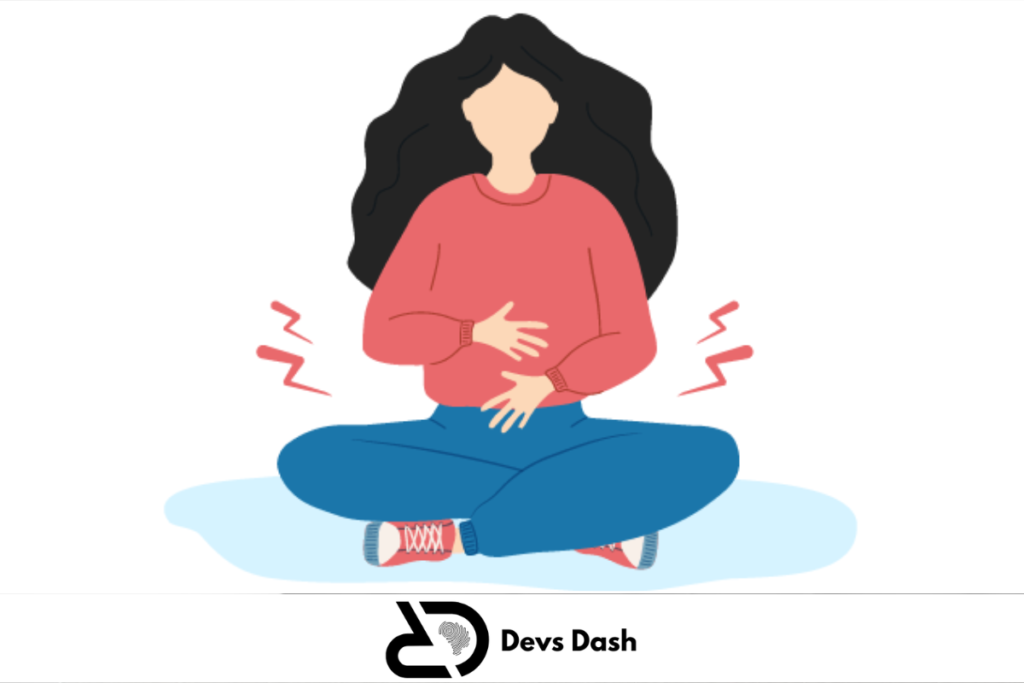Post Menstrual Syndrome: Understanding and Managing Symptoms

Post menstrual syndrome, often overshadowed by its counterpart premenstrual syndrome (PMS), refers to a range of symptoms experienced after a menstrual period ends. While premenstrual symptoms are widely recognized, post menstrual syndrome impacts many women, affecting their physical, emotional, and mental well-being. By understanding its causes, symptoms, and management strategies, individuals can better navigate this lesser-known phase of the menstrual cycle.
What is Post Menstrual Syndrome?
Post menstrual syndrome encompasses a variety of symptoms that arise following the completion of menstruation. Unlike PMS, which occurs before a period, this condition affects women in the days immediately after the menstrual flow has stopped. The experience can vary widely, with some individuals noticing mild discomfort and others grappling with more intense effects.
Although less commonly discussed, post menstrual syndrome is a genuine condition influenced by hormonal changes. It is essential to recognize its legitimacy to provide support and effective solutions for those affected.
Common Symptoms of Post Menstrual Syndrome
Symptoms associated with post menstrual syndrome can impact multiple aspects of a woman’s life. These symptoms may include:
- Physical Symptoms: Fatigue, bloating, breast tenderness, headaches, and lingering cramps.
- Emotional Symptoms: Anxiety, mood swings, irritability, and feelings of sadness or hopelessness.
- Cognitive Symptoms: Difficulty concentrating, brain fog, or reduced mental clarity.
The severity of these symptoms can differ from person to person and may vary from one menstrual cycle to another. Recognizing the symptoms early enables individuals to implement strategies for relief and management.
Causes of Post Menstrual Syndrome
Understanding the causes of post menstrual syndrome requires examining hormonal fluctuations. After menstruation, the body undergoes significant changes in hormone levels, particularly a rise in estrogen and the stabilization of progesterone. These hormonal shifts can trigger physical and emotional responses, contributing to post-period discomfort.
Additionally, factors such as stress, poor diet, and lack of sleep may exacerbate symptoms. Each individual’s unique hormonal balance and lifestyle choices play a role in the intensity and duration of post menstrual syndrome.
The Role of Hormones in Post Menstrual Syndrome
Hormonal changes are the primary drivers of post menstrual syndrome. During the menstrual cycle, estrogen and progesterone levels rise and fall in predictable patterns. After menstruation, the sharp increase in estrogen can cause mood swings, while fluctuating serotonin levels may lead to feelings of sadness or irritability.
These hormonal interactions highlight the intricate connection between the body’s physical and emotional states. A better understanding of this relationship can help in managing symptoms more effectively.
How Post Menstrual Syndrome Differs from PMS
While both post menstrual syndrome and PMS involve hormonal changes, they occur at different times in the menstrual cycle. PMS typically begins one to two weeks before menstruation and resolves once the period starts. In contrast, post menstrual syndrome arises after menstruation ends, often lasting for several days.
The symptoms can also differ slightly, with post menstrual syndrome focusing more on fatigue, anxiety, and lingering physical discomfort. These distinctions emphasize the need for tailored approaches to address each condition.
Impact on Daily Life and Mental Health
The symptoms of post menstrual syndrome can significantly disrupt daily routines and mental health. Fatigue and brain fog may hinder productivity at work or school, while mood swings and irritability can strain personal relationships.
Moreover, the emotional toll of feeling unwell can lead to feelings of frustration or helplessness. Recognizing these challenges is the first step toward finding strategies to mitigate their effects.
Lifestyle Factors That Influence Symptoms
Certain lifestyle factors can intensify the symptoms of post menstrual syndrome. For instance:
- Diet: Consuming high-sugar or high-sodium foods may worsen bloating and mood swings.
- Exercise: Lack of physical activity can contribute to fatigue and sluggishness.
- Stress: Chronic stress exacerbates hormonal imbalances, amplifying emotional symptoms.
Adjusting these lifestyle elements can play a crucial role in managing symptoms and improving overall well-being.
Effective Management Strategies
Managing post menstrual syndrome involves a combination of self-care practices, dietary adjustments, and medical interventions. Effective strategies include:
- Regular Exercise: Engaging in physical activity boosts endorphins and reduces fatigue.
- Healthy Diet: Emphasizing whole foods, lean proteins, and hydration supports hormonal balance.
- Stress Management: Techniques like mindfulness, meditation, and yoga alleviate emotional symptoms.
By integrating these practices into daily life, individuals can find relief and regain a sense of control over their symptoms.
The Role of Supplements in Relief
Certain supplements may help alleviate the symptoms of post menstrual syndrome. Magnesium, for instance, has been shown to reduce bloating and mood swings. Vitamin B6 supports neurotransmitter function, helping to stabilize mood.
However, it is essential to consult a healthcare professional before starting any supplement regimen to ensure safety and effectiveness.
When to Seek Medical Advice
While many cases of PMS can be managed with lifestyle changes, severe or persistent symptoms may require medical attention. Consulting a healthcare provider is crucial if symptoms interfere significantly with daily life or if they suggest an underlying condition such as hormonal imbalances or thyroid issues.
Treatment options may include hormone therapy, prescription medications, or counseling to address emotional symptoms. A tailored approach ensures comprehensive care and effective relief.
The Importance of Tracking Symptoms
Keeping a symptom journal can help individuals identify patterns and triggers associated with PMS . Tracking details such as diet, stress levels, and physical activity provides valuable insights that can inform management strategies.
Additionally, sharing this information with a healthcare provider can aid in diagnosing and treating the condition more effectively.
Post Menstrual Syndrome and Relationships
The emotional and physical challenges of PMS can impact personal relationships. Open communication with partners, family, and friends fosters understanding and support.
Encouraging dialogue about symptoms and needs allows loved ones to provide assistance and empathy during difficult days. This collaborative approach strengthens relationships and reduces feelings of isolation.
Holistic Approaches to Relief
Holistic methods such as acupuncture, aromatherapy, and herbal remedies may offer additional relief for post menstrual syndrome. Lavender oil, for example, promotes relaxation, while chamomile tea soothes anxiety.
These alternative therapies, combined with conventional treatments, create a well-rounded approach to managing symptoms. Consulting with a practitioner experienced in holistic medicine ensures safe and effective integration into a care plan.
The Role of Sleep in Managing Symptoms
Adequate sleep is a cornerstone of symptom management for PMS . Hormonal fluctuations can disrupt sleep patterns, exacerbating fatigue and irritability. Establishing a consistent sleep schedule and practicing good sleep hygiene, such as limiting screen time before bed, supports restorative rest.
Post Menstrual Syndrome and Workplace Productivity
For many women, the symptoms of PMS can affect performance at work. Employers and colleagues benefit from understanding the condition and providing flexibility, such as remote work options or adjusted schedules during difficult days.
By fostering an inclusive work environment, organizations empower employees to manage their health without compromising their professional contributions.
How Post Menstrual Syndrome Is Viewed Globally
The recognition of PMS varies across cultures and medical communities. In some regions, discussions about women’s health remain taboo, limiting awareness and support.
Advocating for education and open dialogue about menstrual health worldwide ensures that more women receive the resources and care they need. Organizations dedicated to women’s health play a vital role in promoting understanding and breaking down stigmas.
The Connection Between Nutrition and Hormonal Health
Nutrition profoundly impacts hormonal health, influencing the severity of PMS symptoms. Consuming foods rich in omega-3 fatty acids, such as salmon and walnuts, supports hormone regulation. Avoiding processed foods and caffeine can also reduce inflammation and bloating.
A balanced diet provides the body with the nutrients needed to navigate the hormonal fluctuations of the menstrual cycle more smoothly.
Research and Advancements in Treatment
Ongoing research into menstrual health continues to shed light on conditions like PMS. Scientists are exploring innovative treatments, including personalized hormone therapies and non-invasive diagnostic tools.
These advancements hold promise for improving the quality of life for women affected by post-menstrual syndrome, emphasizing the importance of continued investment in women’s health research.
Building Awareness and Breaking Stigmas
PMS , like many aspects of women’s health, is often overlooked or misunderstood. Raising awareness through education, media representation, and community outreach fosters greater understanding and empathy.
By normalizing conversations about menstrual health, society can empower women to seek help and advocate for their well-being without fear of judgment or dismissal.
Conclusion
PMS is a significant yet under-recognized condition that affects countless women worldwide. By understanding its symptoms, causes, and management strategies, individuals can take proactive steps to improve their quality of life. Through a combination of lifestyle adjustments, medical care, and open communication, the challenges of PMS can be navigated with greater ease and confidence.







